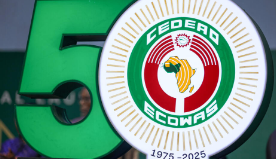The Upper West Regional office of the Ghana Tourism Authority (GTA) is committed to project and promote the various tourism sites and hospitality industries to attract more investors and tourists to the region.
In view of that, it has commenced rehabilitation of the known and unknown tourism sites, building capacity training for the tour guide operators, construction of receptive centers at vantage points as well collaborating with the urban roads authority to see if the road networks leading to the tourism sites could be tarred to curb the stress tourists go through in accessing the sites.
The rehabilitation exercise is to help beautify the various tourism sites to bring development while the hospitality sector such as the hotels, drinking bars and restaurants also enhance their facilities to meet the required standards.
According to management, the region has lots of tourism potentials that needed to be developed to look attractive but the challenge is the resource to embark on the exercise.
Moses Ndebugri, Upper West Regional Manager for GTA, speaking to the B&FT in his office in Wa said, there is the need for the investment to help protect the cultural heritage of the country, noting that the rehabilitation of the sites would go a long way to enhance development in the region and help create job opportunities for the youth.
He stressed that Gbelle Game Reserve, located 17km south of Tumu, is an important sanctuary for endangered species of wildlife, as well as hippos, elephants and bucks. Birdwatchers consider this an important habitat for indigenous and migratory birds.
Although a great deal of development is taking place in these regions, access to outlying areas can be difficult at certain times of the year and during and after heavy rains, he said. “Tourists’ sites in this part of Ghana are not well-developed and roads leading to the few tourists’ sites are also not accessible making it difficult for tourists to get to their destinations.”
On accommodation issues
He said though accommodation facilities at many tourists’ sites are not available, citing the Wechiau Community Hippo Sanctuary as an example, he added that accommodation within the regional capital is increasing with new ones established to facilitate the activities of tourists and investors.
Tourism development
To enhance tourism development in the region, he said a Tourism Development Committee (TDC) has been established to manage the various sites, help keep proper records of the sites as well as assists the assemblies to provide the needed infrastructure to boost tourism activities in the region.
COVID-19
Since the outbreak of COVID-19, which has seen the introduction of safety protocol, Mr. Ndebugri stressed that management has not relented in its effort to ensure that all comply with the protocols. According to him, management, through the head office, provided Personal Protective Equipment (PPE) to the various hospitality operators in the region.
He added that a sensitization exercise has since been taken place thereby educating operators and the public on the need for precautionary measures to help curb the spread of the virus.
Networks issues
He said, while management making efforts to engage telecom operators on the need to enhance network services at the various sites, efforts are also being made to ensure the communities get permanent phone and sim cards that can help effective communication with tourists and business entities.
Way forward
He added that management is in talks with the road and highways unit to help address the road network issues hindering development at the various tourism sites and also with the traditional authorities to help safeguard the cultural heritage of the region.
He stressed that the opening of the Wa airport would also go a long way to boost tourism-related activities in the region. “We want to use tourism as a catalyst to bring development to the doorsteps of the host communities. So if one has an attraction and would pull tourists to the sites, there is the need for accessibility to the site.”










